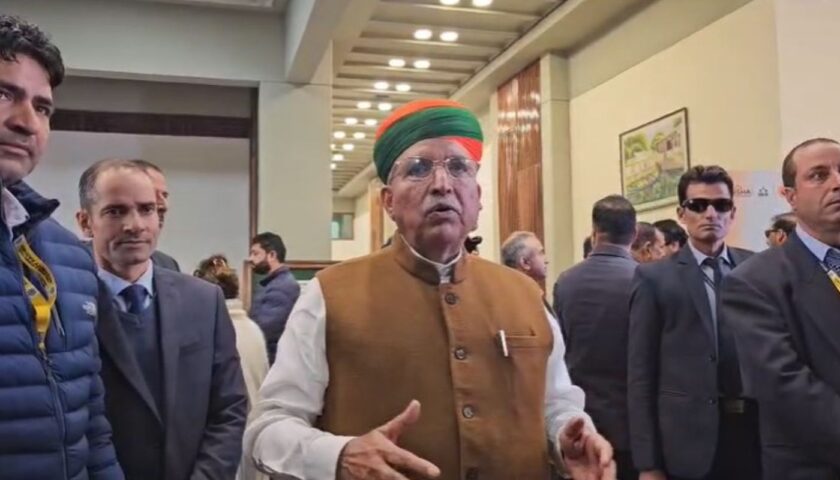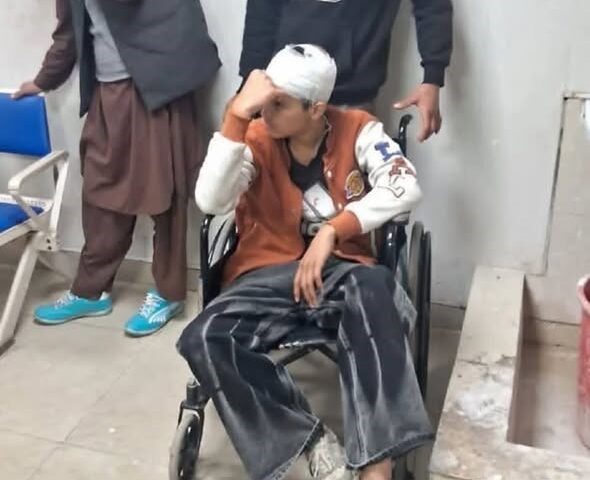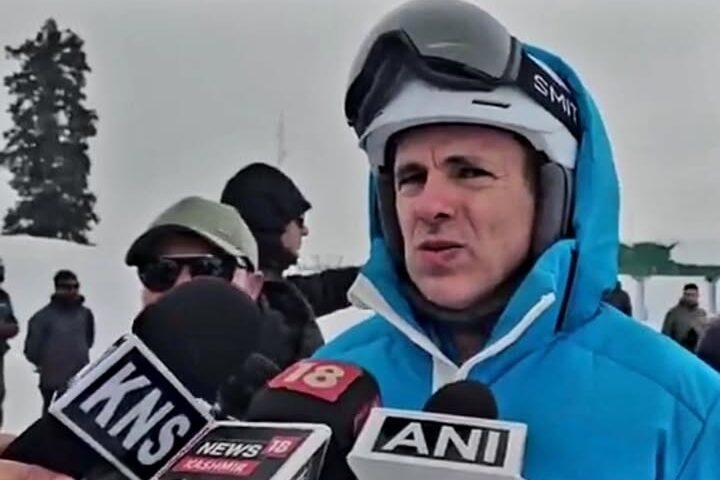A Long-Awaited Meeting Signals a Shift Toward Reconciliation
In a politically significant moment, Mehbooba Mufti, president of the Peoples Democratic Party (PDP) and former Chief Minister of Jammu and Kashmir, met Lieutenant Governor Manoj Sinha at the Raj Bhavan in Srinagar. This was her first formal interaction with the LG in over five years, breaking a prolonged period of political silence between regional leadership and the UT administration.
At the heart of this conversation was the dignified return and reintegration of displaced Kashmiri Pandits, a community that fled the Valley in the 1990s due to insurgency and threats to their lives. Mehbooba Mufti’s proposals were direct, forward-thinking, and rooted in restorative justice.
Key Highlights from the Meeting
01. Political Reservation for Kashmiri Pandits
Mufti proposed replacing the current nomination-based representation of Kashmiri Pandits in the Jammu & Kashmir Legislative Assembly with two reserved constituencies. This would give the displaced community direct electoral rights, ensuring they can choose their own representatives rather than rely on symbolic nominations.
“Kashmiri Pandits must not be passive observers in politics. They must become active stakeholders again,” Mehbooba said.
02. Land Rights for Displaced Families
In a groundbreaking proposal, Mehbooba suggested that each displaced Kashmiri Pandit family be allotted 0.12 acres of land in their home districts. This would not only enable a practical roadmap for return, but also acknowledge the need for tangible resettlement support.
03. Dialogue-Led Reintegration Process
She urged the LG to initiate a structured, inclusive dialogue involving:
-
-
Kashmiri Pandit community leaders
-
Civil society groups
-
Muslim community elders
-
Administrative officials
-
This would help design a safe, sustainable and community-led model for repatriation and reintegration.
04. Appeal for Prisoner Release Ahead of Eid
Mufti requested the release of Kashmiri prisoners who do not face serious charges, especially in the run-up to Eid celebrations. She emphasized this as a confidence-building measure that could foster goodwill and ease tensions.
05. Local Involvement in Amarnath Yatra
In a nod to cultural and religious pluralism, Mehbooba stressed the role of local Kashmiris—Muslims and Hindus alike—in facilitating the annual Amarnath Yatra. She called for ensuring local participation and safeguarding the region’s shared spiritual heritage.
Why This Meeting Matters Now
This interaction occurs against the backdrop of increasing communal outreach efforts, including the Kheer Bhawani Mela on June 3, which is expected to draw thousands of Kashmiri Pandits to the Tulmulla temple in Ganderbal.
It also coincides with renewed debates on Article 370, democratic representation, and the future of Kashmiri identity in the post-abrogation era. By meeting LG Sinha, Mehbooba Mufti is re-entering the formal political arena and pushing for policy-level action, not just rhetoric.
Deeper Dive: What Each Proposal Means
Reserved Constituencies: A Constitutional Solution
Currently, Kashmiri Pandits are nominated to legislative bodies, offering them no real power to influence policy. Reserved constituencies would allow geographic, electoral, and psychological ownership, much like SC/ST reserved seats across India.
This also sets a precedent for addressing internally displaced populations through legislative innovation, not just administrative gestures.
Land Allocation: Return with Dignity
The allocation of 0.12 acres (approx. 5,200 sq ft) per family is more than symbolic. It provides:
-
-
Residential security
-
Emotional reconnection to ancestral roots
-
A chance to rebuild community clusters
-
If implemented, it would be one of the largest civilian resettlement programs in post-independence India.
Dialogue-Driven Reintegration: A Model of Coexistence
Unlike top-down policy measures, Mehbooba’s proposed model is grassroots-first, aiming to bring both communities into shared spaces of dialogue, acknowledgment, and trust-building.
It positions reconciliation as a collective societal process, not a political agenda.
Political and Social Reactions: Early Signs of Support
Civil Society Speaks
Initial responses from civil society groups have been largely positive, especially those advocating Kashmiriyat—the syncretic cultural identity of Kashmir.
Community Leaders Welcome the Move
Some Kashmiri Pandit organizations, while awaiting details, have appreciated the shift from symbolism to concrete proposals. Many welcomed Mehbooba’s acknowledgment of the Pandit exodus as a collective moral loss.
Political Observers See a Recalibration
Analysts note that this meeting reflects Mehbooba Mufti’s attempt to recalibrate her political image—from resistance leader to solution-seeking reformist, ready to engage with the administration for practical outcomes.
A Blot on Our Conscience: Mufti’s Honest Acknowledgment
Perhaps the most impactful statement of the meeting was Mehbooba’s characterization of the Pandit exodus as a “blot on Kashmiri Muslims.” It was a rare and honest admission, cutting across partisan lines.
“Their return isn’t just about policy—it’s about healing, it’s about redemption,” she said.
This empathetic framing helps move the conversation from blame to responsibility, offering space for reconciliation.
What Happens Next?
Will the LG Act on Her Proposals?
So far, LG Sinha’s office has not issued a formal statement. However, insiders suggest that the proposals are being seriously evaluated, especially given the sensitive timing and growing calls for inclusivity.
Will Other Parties Echo This Call?
Her proposals may now pressure other political parties—especially the BJP and NC—to clarify their stance on Pandit resettlement, lest they be seen as lagging on an issue of humanitarian importance.
Can This Lead to a Broader Reconciliation Framework?
If picked up and formalized, this approach could become a national model for reconciliation in other conflict-affected zones—showing how grassroots justice can lead to peace.
Bottom-Line: From Polarization to Partnership
Mehbooba Mufti’s bold and compassionate proposals have introduced a new template for healing communal wounds, restoring displaced identities, and bridging political divides in Jammu & Kashmir. By emphasizing inclusivity, dignity, and dialogue, this meeting may well mark the first step toward a future where coexistence is not an aspiration, but a shared reality.




